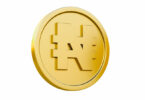On July 17th, tech firm GTX announced its partnership with blockchain logistics firm ShipChain for tracking shipments. GTX, known for wearable GPS technology, will provide NFC smart tags to monitor temperature and location in real-time. The data will be stored on ShipChain’s blockchain track and trace platform.
The announcement also reveals that a yet-to-be-revealed customer of both parties will use the NFC tags. In future other wireless NFC trackers by GTX will be integrated with ShipChain. The latter, one of the 100 members of the World Economic Forum (WEF) blockchain initiative, to date, has worked mainly in food logistics. This project hopes to safeguard the quality of perishables, like food and pharmaceuticals, as they are transported.
If shipped items are discovered to be spoiled, the traceability platform allows the temperature and location data to be checked and trusted. Since it is immutable on a blockchain, the shipping firm can find out exactly where and when the products spoiled.
This secure, verifiable data log ensures products like medications, where it is not always clear if the temperature has damaged the items, can be safely distributed.
“ShipChain’s new partnership with GTX is another step toward reaching our goal: a transparent, unified, end-to-end logistics platform,” said John Monarch, ShipChain’s CEO.
“Until now, availability and cost of sensors was always a stumbling block,” he explains, “But GTX’s smart tags – integrated into ShipChain’s track and trace platform – provide low cost, powerful tool to give our customers even more information about their shipments. Now, we can provide new visibility into food quality, temperature history, location, and handler information.”
The CEO of GTX, Patrick Bertagna, explained: “While developing our cutting edge NFC products and talking to customers, we realized we needed to incorporate blockchain security in order to be an influencer in the shipment tracking and monitoring business.”
What’s comparatively unusual is that ShipChain uses the public Ethereum blockchain. Earlier this year, ShipChain partnered with Swedish based logistics company Scanlog. In that case, it attached a GPS device to lorries and Scanlog stores the encrypted data with an additional indecipherable fingerprint of the data stored on the Ethereum blockchain. That way if Scanlog’s information is changed, it will no longer match what’s on the blockchain.
Blockchain is fast becoming a standard offering in shipping and logistics. Five of the six world’s largest shipping carriers are part of the TradeLens blockchain initiative by IBM and Maersk. The odd one out is China-based COSCO, a key member of the competing Global Shipping Business Network.
A day before ShipChain’s announcement, a new blockchain consortium for logistics in Austria was founded including DB Schenker and LKW Walter. Meanwhile, both China, in a customs project, and the Netherlands, in a successful tracking pilot, have seen success in using blockchain in the last month.





